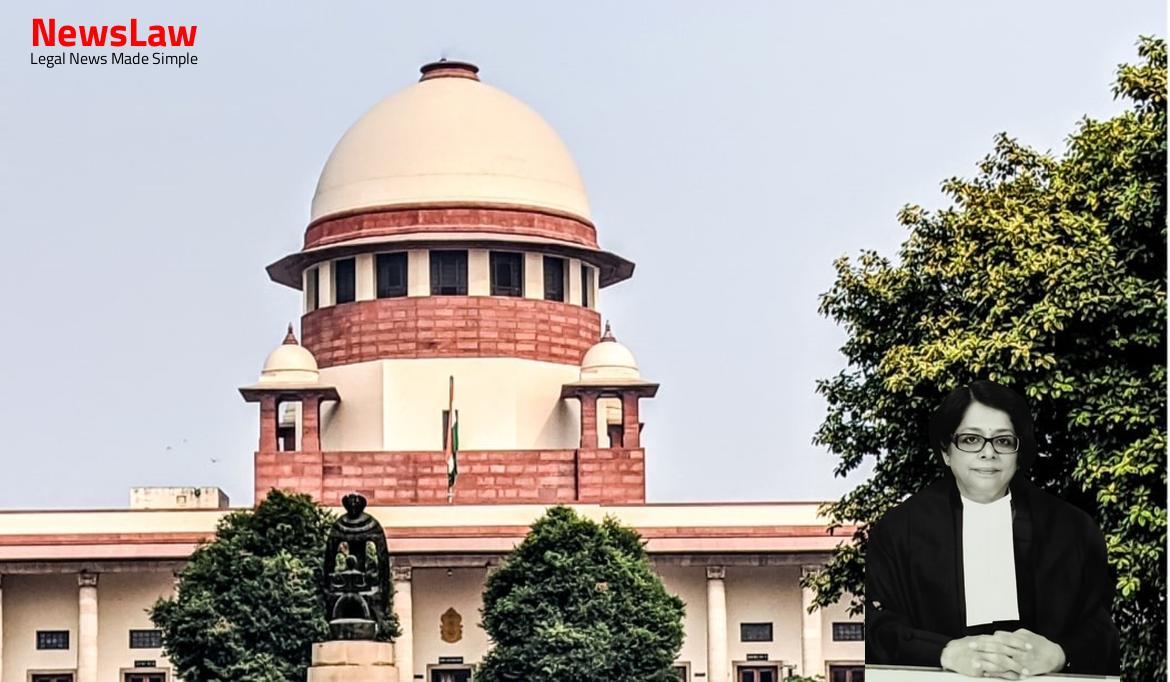In a recent landmark ruling by the Supreme Court of India, the case of Yadav v. State of Madhya Pradesh addressed the issue of relying on testimony of a hostile witness in a criminal appeal. The judgment provides clarity on the admissibility of evidence from witnesses who resile during cross-examination. This decision shapes the future interpretation of witness testimonies in legal proceedings, establishing a significant precedent for the judicial system.
Facts
- The dying declaration was corroborated by medical evidence showing grievous injuries inflicted by the Appellants on the deceased.
- The High Court cited the judgment in Laxman v. State of Maharashtra regarding the validity of a dying declaration.
- The Appellants filed a Criminal Appeal challenging the conviction and sentence of Life Imprisonment by the High Court.
- The High Court affirmed the conviction under Section 302 IPC and the sentence of Life Imprisonment stating consistency in statements and the homicidal cause of death.
- The Sessions Court had previously convicted the Appellants under Section 302 IPC based on the consistent dying declarations.
- Both dying declarations indicated that the Appellants had attacked the deceased with lathis on various parts of his body.
- Ghansu Yadav recorded a dying declaration stating that the accused, Dayaram and Parsu, assaulted him with lathis near a culvert in the village.
- Prior to the assault on Ghansu, his son Chandu was also attacked by Dayaram.
- The FIR was recorded 1 hour and 15 minutes before Ghansu’s death, and his thumb impression was on it.
- Witnesses heard Ghansu screaming and shouting for help near the canal where he was found with severe injuries.
- Ghansu mentioned that the attack was orchestrated by Durju Nata, the father of the accused individuals.
- The Sessions Court convicted the appellants for murder under Section 302 IPC based on the dying declaration and witness testimonies.
- The motive behind the attack was established from the dying declaration and the victim’s son’s deposition.
- Ghansu was conscious while giving his dying declaration to the Executive Magistrate, despite being severely injured.
- The FIR lodged by Ghansu was considered his first dying declaration, with the second declaration matching its contents.
- Medical reports confirmed that Ghansu succumbed to his injuries due to severe head and body injuries.
- The assault stemmed from a dispute involving the buffaloes of the victim’s son and the accused, Dayaram.
- Chandu, the victim’s son, provided crucial evidence regarding the motive behind the attack.
- The appeal before the Madhya Pradesh High Court was filed collectively by the appellants following the Sessions Court’s verdict.
Arguments
- The issue at hand is whether testimony of a hostile witness, PW 7, should be relied upon.
- Mr. Jain, learned Senior Counsel for the appellant, argues that PW 7’s evidence should be discarded entirely as he resiled in his cross-examination.
Also Read: CRPF Act: Validity of Rule 27 for Compulsory Retirement – Case of Head Constable vs. CRPF
Analysis
- The incident occurred at 3:00 p.m. and the F.I.R was lodged at 4:20 p.m. by the deceased.
- The F.I.R clearly states the names of both the Appellants as the assailants and gives clear details of the incident.
- The second dying declaration recorded by the Executive Magistrate did not contain the thumb impression of the deceased due to injuries on his hands.
- The evidence of witnesses declared hostile can be accepted to the extent that their version is found dependable upon careful scrutiny.
- The post mortem conducted on the deceased supports the narrative provided by the deceased in the report.
- The F.I.R should be treated as a Dying Declaration according to Section 32(1) of the Evidence Act.
- The testimonies of witnesses before cross-examination indicate the deceased was conscious and able to give a dying declaration.
- Witnesses have supported the prosecution story in entirety in examination-in-chief but showed prevarication in cross-examination.
- The deceased informed witnesses of the attack by the assailants, and the F.I.R was lodged promptly.
- Testimony prior to cross-examination can be relied upon.
- In Bhagwan Singh v. State of Haryana, the court emphasized that a dying declaration, if found to be true, voluntary, and correct, should not be rejected solely based on the lack of signatures or thumb impressions of the person recording it.
- The decision in Sukanti Moharana v. State of Orissa supported the idea that even if a witness is hostile, their evidence remains admissible and can be relied upon if corroborated by other reliable evidence.
- The totality of evidence, including consistent dying declarations by the deceased and corroborated by medical evidence, can lead to a conviction beyond reasonable doubt.
- The admissibility of a dying declaration is based on the principle of ‘Nemo Moriturus Praesumitur Mentire,’ indicating that a dying person is unlikely to lie, making such declarations significant in determining the cause of death or circumstances leading to it.
- Section 32(1) of the Indian Evidence Act deals with dying declaration.
- A statement made by a person about the cause of his death or the circumstances of the transaction leading to his death is relevant in any case where the cause of death is in question.
- Such statements are admissible in legal proceedings.
- The ratio in this case was established based on the interpretation of a specific legal provision.
- The court examined the intent and purpose behind the provision to determine the correct ratio.
- Precedents and case law were also considered in reaching the ratio in this judgment.
- The ratio is significant as it forms the basis for future decisions in similar cases.
Also Read: DAMEPL vs. DMRC: Curative Petition and Arbitral Award Restoration
Decision
- Appeal has failed and is dismissed.
- Judgment by Sessions Court and High Court affirmed.
Case Title: DAYA RAM Vs. THE STATE OF MADHYA PRADESH
Case Number: Crl.A. No.-001522-001522 / 2009



